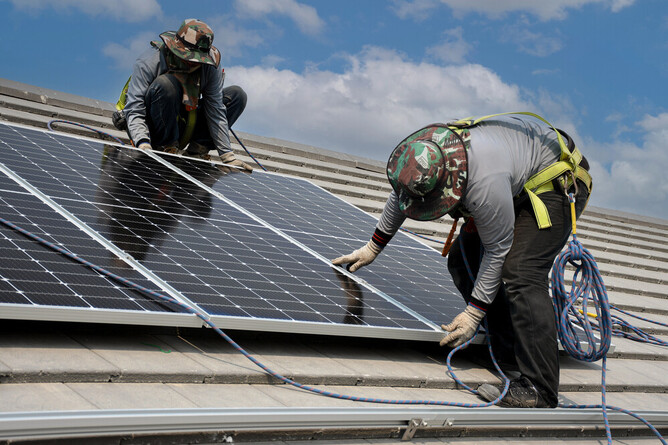The renewable energy market has expanded significantly in recent years. For homeowners exploring clean energy options, a key decision is choosing between a wind turbine and a solar panel for home use. Both offer unique advantages, but the right choice depends on factors such as climate, property design, and individual priorities.
Space and Site Requirements: Are You Ready to Commit?
First, let’s talk about space and location. Solar panels are relatively adaptable – they can be installed on your roof or in an open yard space, making them suitable for suburban or urban home designs. They work best in sunny areas, though they still generate some energy on cloudy days. The more roof space you have, the greater your energy production potential.
On the other hand, wind turbines are typically larger and need a lot of open space for efficient operation. They require a wind speed of about 10 mph to function well, so rural or coastal areas with consistent wind are ideal. Unlike a sleek row of panels on your roof, a wind turbine can be a noticeable presence on your property.
Cost Efficiency: What Fits Your Budget?
The initial investment can vary, but both options have become more affordable over the years. Solar panels are usually cheaper upfront, with smaller residential systems costing anywhere from $10,000 to $20,000 before tax incentives. Wind turbines, particularly residential ones, might set you back around $30,000 to $50,000.
Maintenance costs also differ: solar panels are largely hands-off, while wind turbines, with moving parts, need regular checks and maintenance that can add up over time. However, both options offer government incentives and tax credits in many regions, which can offset a portion of the cost.
Environmental Impact: Which Option Aligns with Your Goals?
Both solar panels and wind turbines are environmentally friendly alternatives to traditional power sources, but their impacts differ. Solar panels generate electricity without any noise or disruption, making them a good fit for densely populated areas. They do come with an environmental cost in the form of mining for materials and manufacturing, but this is largely offset by the reduction in carbon emissions over their lifetime.
Wind turbines produce no emissions but do create noise and can impact local wildlife, particularly birds and bats. While newer designs minimize these effects, they’re still worth considering if environmental concerns are a priority.
Energy Consistency: Will It Power Your Home Year-round?
Solar panels provide the benefit of consistent energy production. Even on cloudy days, they can generate a reliable amount of power. In regions with plentiful sunshine, it is possible to produce surplus energy, which can be stored in batteries or supplied back to the grid for additional benefits.
Wind turbines depend heavily on less predictable wind conditions. During calm weather, they produce minimal energy, potentially leaving you reliant on the grid or a backup source. If you’re looking for year-round consistency and live in a sunnier region, solar may be the winner.
The Aesthetic Factor: Visual Appeal or Statement Piece?
Aesthetically, solar panels blend into a roofline and can go unnoticed unless you’re looking. Wind turbines, by contrast, are hard to miss and may not blend with every neighborhood aesthetic. While they can make a bold, eco-conscious statement, they also tend to stand out.
Ready to Make the Switch to Green Energy?
Solar panels are generally easier to integrate into urban and suburban homes, especially if you’re after low-maintenance, reliable energy. Wind turbines, while impactful, are best suited for open, windy areas and homeowners willing to manage a larger, more involved setup.
At PE Builders, we’re committed to transforming construction in New York City through eco-friendly, high-quality practices. Our experienced team offers a range of sustainable construction services, from LEED certification to energy-efficient design, making us a trusted partner for your next green project. Join us in creating innovative, cost-saving solutions that benefit both your business and the environment.

